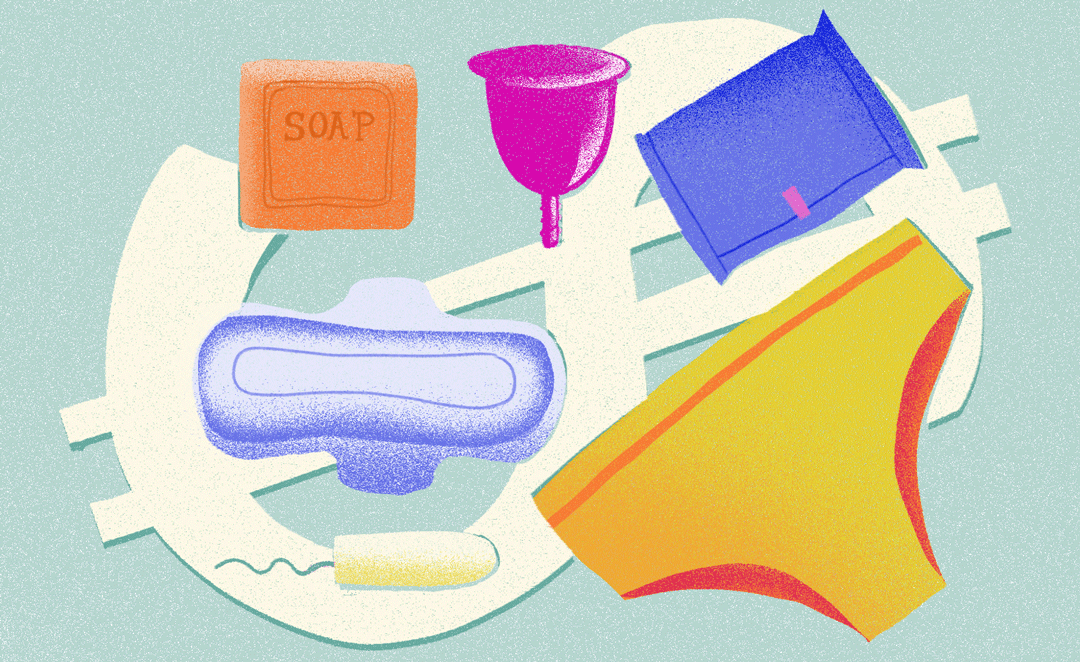
What Is Period Poverty?
Share
 Many of us have the privilege of running to the store to get what we need when that time of the month rolls around. Sanitary products like pads and tampons can be costly, making it difficult for those who live in poverty to prepare for their periods. Additionally, there are spaces where sanitary products aren't accessible, which means more and more people are going without the necessary things they need for menstruation.
Many of us have the privilege of running to the store to get what we need when that time of the month rolls around. Sanitary products like pads and tampons can be costly, making it difficult for those who live in poverty to prepare for their periods. Additionally, there are spaces where sanitary products aren't accessible, which means more and more people are going without the necessary things they need for menstruation.
Period poverty highlights the necessity for period products to be free and easily accessible. Menstruation, for most, is a monthly occurrence. Without the right products, it can be challenging to stay clean and sanitary, leading to embarrassment and discomfort for those who don't have access. Period poverty reaches the forefront of modern awareness as menstruation activists fight every day to bridge gaps, spread awareness, and provide for those who can't afford necessities.
Who Is Affected By Period Poverty?
Period poverty is a globally recognized issue that affects those who menstruate but live in areas or conditions where they don't have access to period products or cannot menstruate safely. Low-income and underdeveloped communities tend to suffer the most from period poverty. Access to period products is significantly reduced in these communities, and the price of these products can be significant to those living below the poverty line.
Period poverty goes further than just lessened access to hygiene products. It also means inadequate access to education or even facilities to help keep clean while menstruating. It is a privilege to be able to run to the grocery store and have your pick of period products without worrying about the cost. It is even more of a privilege to have a place to focus on your hygiene during your period so that you can stay clean and comfortable.
What Causes Period Poverty?
The main culprit is the "pink tax," which unfortunately is yet to be rectified in the USA and many other countries. The "pink tax" is the state tax that classifies period products as non-essential. Those on government assistance can't use benefits to purchase tampons and pads as they don't fall under the category of necessity. Menstrual products help with something that people go through once every month for years upon years, and somehow they are not considered essential.
There are homeless people who can't properly care for their menstrual cycle as they can't afford products and don't have facilities to care for themselves. This is why sanitary products are in such high demand at shelters because otherwise, these people have no resources for them.
What Do We Do?
There are organizations all over the world that work to bring awareness about period poverty. These organizations raise funds, gather products for those in need, and devote their time and energy to protest against the "pink tax" and change the way we regard periods as a society. These organizations fight for people who need help and deserve dignity when it comes to menstruation.
PERIOD is one of the global nonprofits working to end period poverty and fight against stigma while supporting menstrual education and advocacy. Others like Happy Period are WOC-operated and are focused on bringing sanitary products to those in need. Code Red Collective also does a lot of education and advocacy work to get awareness and end stigmas.
There are so many people and organizations that are working hard to bring period poverty to an end. It is a global-scale issue, so it will take time and effort, along with lawmakers' help, to start making significant changes. Until things can be changed overall, we have to keep working to bring aid to those who need it.
Consider donating sanitary products to a local shelter, or connect with an advocacy group to see what they are doing in your community to help combat period poverty. Something as simple as leaving spare sanitary products in a public restroom can make a world of difference for someone who's struggling.
